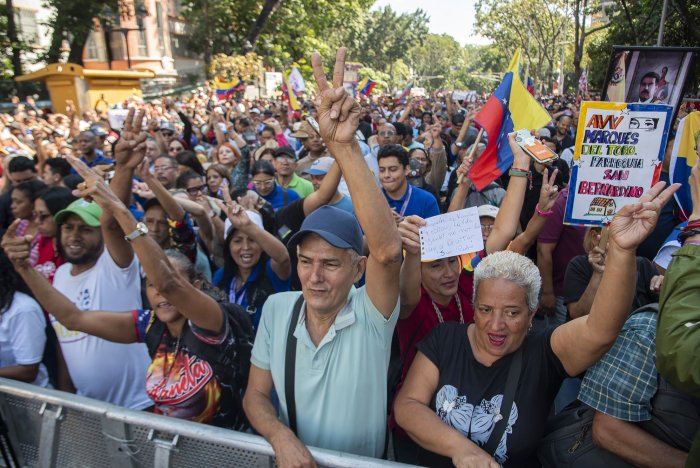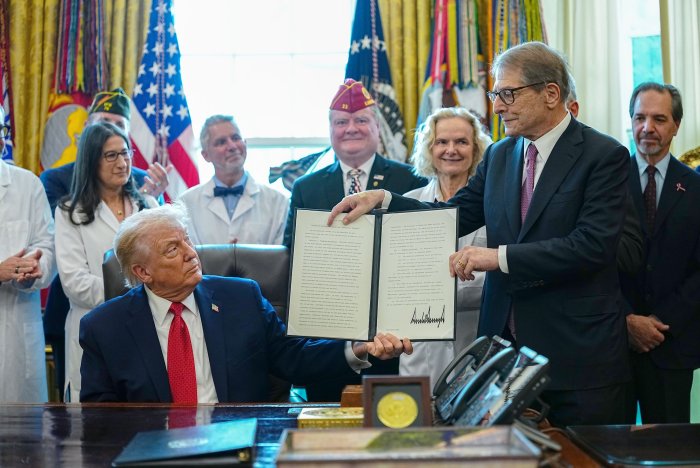U.S. seizes two oil tankers in North Atlantic, Caribbean Sea
1 of 2 | A member of the U.S. Coast Guard keeps watch on the Marinera, formerly known as the M/V Bella 1, in the North Atlantic. Photo courtesy of U.S. European Command
Jan. 7 (UPI) — The United States on Wednesday said that it seized two oil tankers — a Russian-flagged vessel in the North Atlantic and another in the Caribbean Sea.
U.S. Southern Command said, in coordination with the U.S. Department of Homeland Security, it “apprehended a stateless, sanctioned dark fleet motor tanker without incident.”
SOUTHCOM accused the vessel, the M/T Sophia, of carrying out “illicit activities” in international waters in the Caribbean Sea. In a post on X, the agency said the U.S. Coast Guard was escorting the vessel to the United States for “final disposal.”
U.S. European Command, meanwhile, announced it seized the Russian-flagged Mariners — formerly known as the M/V Bella 1 — a vessel it had been chasing across the Atlantic Ocean since December.
EUCOM, in a post on X, said it seized the tanker for violating U.S. sanctions and transporting Iranian oil.
“The vessel was seized in the North Atlantic pursuant to a warrant issued by a U.S. federal court after being tracked by USCGC Munro,” the agency said.
U.S. officials said Russia sent two naval ships and a submarine to escort the Marinera, which was between Iceland and Britain, heading northeast.
The United States deployed at least 10 special-ops military aircraft and transporter aircraft thought to be carrying helicopters to RAF bases in Britain in recent days, possibly in preparation for an interdiction.
The U.S. Coast Guard attempted to execute a warrant to seize the tanker in the Caribbean in December, when it was believed to be headed to Venezuela in contravention of a partial U.S. blockade.
The ship’s final destination was thought to be the Baltic Sea, or possibly the Russian port of Murmansk on the Barents Sea.
The Russian Foreign Ministry said it was monitoring the situation with “concern” and complained about what it said was unwarranted attention from the United States and its NATO allies.
The vessel refused to permit the Coast Guard to board on its first attempt Dec. 21 when it was en route from Iran to collect oil from Venezuela, changed course and headed back out into the Atlantic.
On the way, it painted a Russian flag on the hull, changed its name from Bella 1 to “Marinera” and listed on a Russian shipping registry, in a bid to shake off its U.S. pursuers.
The New York Times reported that Hyperion and at least three other vessels plying the Venezuela route, employed similar stealth tactics, swapping their original flags for Russian ones — exacerbating already tense relations strained over the U.S. attack on Venezuela which is backed by Moscow.
All the ships are suspected of being part of Russia’s so-called “shadow fleet,” moving Russian, Iranian and Venezuelan oil subject to sanctions imposed by the United States, European Union and other countries around the world.
The Russian Maritime Shipping Registry records show the ships, which are all sanctioned by the United States for transporting Iranian or Russian oil, changed their home ports to Sochi or Taganrog in southern Russia and switched flags.



